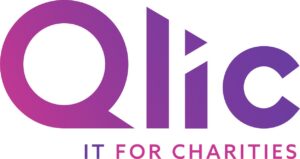
As climate change accelerates, organisations worldwide must take immediate and tangible actions to reduce their environmental impact. Nonprofits play a crucial role in leading the charge toward a greener future. Achieving sustainability requires adopting cleaner, more efficient technologies that minimise carbon footprints while maximising impact.
Microsoft is at the forefront of this transformation and is committed to becoming carbon negative, water positive and zero waste by 2030. Microsoft is also committed to supporting other organisations in becoming more sustainable.
Microsoft provides innovative solutions that help charity organisations measure, manage, and reduce their environmental impact. Above all, Microsoft Cloud for Sustainability is designed to empower nonprofits with the tools they need to track and improve their sustainability efforts. By including the right cloud-based technologies in their digital transformation strategy, charities can enhance efficiency, reduce waste, and drive real change in their communities.
In this blog, we will explore:
- What is Microsoft Cloud for Sustainability, exploring its core components and functionalities
- We’ll examine what the platform is, how it works and explore its key features and capabilities
- The benefits of Microsoft Cloud for Sustainability for nonprofits
To make a lasting impact, nonprofits must have sustainable IT solutions that can support their organisation’s green initiatives and make their operations more sustainable in line with their mission.
What is Microsoft Cloud for Sustainability?
Microsoft Cloud for Sustainability is a comprehensive solution designed to help organisations integrate sustainability into their organisation, drive measurable progress and achieve their sustainability goals. As climate change continues to pose global challenges, this powerful tool enables charities to track, manage, and reduce their environmental impact while fostering long-term sustainability.
This innovative platform brings together a suite of environmental, social, and governance (ESG) capabilities from across the Microsoft Cloud portfolio. By integrating data-driven insights, automation, and AI-powered analytics, Microsoft Cloud for Sustainability empowers nonprofits to:
- measure carbon emissions
- build a sustainable IT infrastructure
- optimise resource usage
- align with global sustainability standards
- create greater transparency and accountability through their value chain
Additionally, Microsoft collaborates with a vast ecosystem of partners to provide tailored solutions that support both environmental responsibility and organisational growth.
As a cloud-based solution, Microsoft Cloud for Sustainability offers scalability, flexibility, and accessibility, allowing nonprofits to leverage real-time data without the need for costly on-premises infrastructure. A cloud solution means that data and applications are hosted on remote servers, accessible from anywhere with an internet connection, ensuring efficiency and security.
The benefits of cloud computing for charities include cost savings, improved collaboration, and enhanced data security. Learn more about charity cloud solutions here.
Key Features and Capabilities of Microsoft Cloud for Sustainability
Microsoft Cloud for Sustainability is a powerful tool that equips nonprofits with powerful AI-driven analytics and data integration tools to measure, manage, and reduce their environmental impact. By leveraging its cloud-based technologies, nonprofit organisations can track emissions, streamline
reporting, and drive sustainability initiatives with precision.
The key features and capabilities of Microsoft Cloud include:
- Microsoft Sustainability Manager
- Data and AI Integration
- Real-Time Environmental Impact Visualisation
- Customisable Reporting
- Seamless Integration
Let’s delve into the features and capabilities further.
Microsoft Sustainability Manager
Microsoft Sustainability Manager is a comprehensive tool that centralises sustainability data, enabling nonprofits to track carbon emissions, water usage, and energy consumption. It provides an end-to-end solution for data collection, analysis, and reporting, helping organisations stay compliant with environmental regulations and demonstrate their commitment to sustainability. The platform integrates seamlessly with various business systems, breaking down data silos by automating data connections and calculations. Organisations can extend their core capabilities using Azure and Power Platform tools to create custom solutions, such as new formulas or reports.
Data and AI Integration
Microsoft Copilot for nonprofits is integrated with Microsoft Cloud for Sustainability, offering powerful AI capabilities. It utilises AI-powered insights to help nonprofits make informed decisions. One of these features is responsible AI FAQs, which allow users to ask questions about their sustainability data in natural language and receive immediate insights. For example, you can ask for the correct global warming potential (GWP) value for a specific gas and assessment report.
By using these integrated AI features, organisations can automate sustainability reporting, identify patterns in resource consumption, and optimise operations for better environmental outcomes.
Real-Time Environmental Impact Visualisation
One of the most powerful features of Microsoft Cloud for Sustainability is its ability to automate data gathering. The platform offers various ways to import data from different systems to capture emissions, water, and waste data. The unified Microsoft cloud for sustainability data model standardises this information, and the system automates calculations using pre-built methodologies for various emission scopes, water, and waste.
It provides a near real-time view of your environmental footprint. By pulling data from multiple sources, nonprofits gain accurate, up-to-date insights into their environmental footprint.
Customisable Reporting
Nonprofits must align with evolving regulatory frameworks and stakeholder expectations. Microsoft Cloud for Sustainability offers flexible, customisable reporting tools that allow organisations to generate tailored reports on carbon reduction efforts and compliance with sustainability standards.
Seamless Integration with Microsoft Ecosystem
Designed to work within the broader Microsoft ecosystem, Microsoft Cloud for Sustainability integrates seamlessly with tools such as Azure, Power BI, and Dynamics 365. This ensures a unified experience, enabling nonprofits to leverage existing cloud infrastructure while enhancing their sustainability initiatives.
By utilising these features, nonprofits can accelerate their sustainability progress, reduce their environmental footprint, and demonstrate accountability to stakeholders, all while optimising operational efficiency.

Benefits of Microsoft Cloud for Sustainability for Nonprofits
Adopting Microsoft Cloud for Sustainability provides nonprofits with the tools they need to effectively measure, manage, and reduce their environmental impact. From tracking carbon emissions to improving data transparency, this solution enables charities to operate more sustainably while enhancing decision-making and reporting capabilities.
Here’s why your charity should use Microsoft Cloud for Sustainability:
- Reduce the Environmental Impact of Your Charity Operations
- Improved Decision-Making with Advanced Analytics
- Enhanced Data Transparency and Reporting
- Better ESG Data Management
Let’s take a look at the benefits of Microsoft Cloud for Nonprofits in more detail.
Reduce the Environmental Impact of Your Charity Operations
By using Microsoft Cloud for Sustainability, nonprofits can actively reduce their carbon footprint and optimise energy consumption. With real-time tracking and AI-powered insights, organisations can identify inefficiencies, transition to greener alternatives, and work toward achieving net-zero goals.
Improved Decision-Making with Advanced Analytics
Nonprofits can leverage Microsoft Sustainability Manager to track critical environmental metrics. By unifying data from multiple data sources, charities can generate clear, data-driven sustainability reports that provide deeper insights into their environmental impact.
Enhanced Data Transparency and Reporting
With AI-driven insights and predictive analytics, nonprofits can assess environmental trends and risks, enabling them to make informed sustainability decisions. Additionally, Microsoft Cloud for Sustainability helps charities implement a sustainable IT strategy that aligns with their mission while ensuring compliance with evolving sustainability regulations.
Better ESG Data Management
Accurate environmental, social, and governance data is critical for nonprofits to demonstrate their sustainability progress to stakeholders, donors and funders. Microsoft Cloud for Sustainability provides real-time ESG insights and data to help charities measure their environment and social impact, ensuring they have access to reliable information for reporting, compliance, and decision-making.

Closing Thoughts
For nonprofits, adopting Microsoft Cloud for Sustainability presents a powerful opportunity to reduce environmental impact, enhance data transparency, and improve decision-making with AI-driven insights.
With Microsoft’s commitment to supporting nonprofits in their sustainability journey, organisations have access to innovative solutions that drive real, measurable change. Nonprofits can now embrace sustainable IT practices and leverage technology to build a more environmentally responsible future.
By adopting Microsoft Cloud for Sustainability, charities can lead by example, reduce their carbon footprint, and create lasting positive change for both their communities and the planet.
Get in Touch
Would your charity like to learn more about Microsoft Cloud for sustainability and how Qlic can help you? Get in touch with the team at Qlic here.






